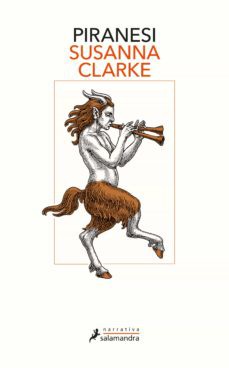www.euskadi.eus, the Basque government's website, which includes online library services
(ePub)
Available for loan
andalucia.ebiblio.es, the online library of Andalucia in Spain
(ePub)
Available for loan
www.euskadi.eus, the Basque government's website, which includes online library services
(ePub)
Available for loan
andalucia.ebiblio.es, the online library of Andalucia in Spain
(Daisy)
Available for loan
andalucia.ebiblio.es, the online library of Andalucia in Spain
(ePub)
Available for loan
www.euskadi.eus, the Basque government's website, which includes online library services
(ePub)
Available for loan
asturias.ebiblio.es, the online library of Asturias, in Spain
(ePub)
Available for loan
andalucia.ebiblio.es, the online library of Andalucia in Spain
(Daisy)
Available for loan
andalucia.ebiblio.es, the online library of Andalucia in Spain
(ePub)
Available for loan
www.euskadi.eus, the Basque government's website, which includes online library services
(ePub)
Available for loan
asturias.ebiblio.es, the online library of Asturias, in Spain
(Daisy)
Available for loan
asturias.ebiblio.es, the online library of Asturias, in Spain
(ePub)
Available for loan
andalucia.ebiblio.es, the online library of Andalucia in Spain
(Daisy)
Available for loan
andalucia.ebiblio.es, the online library of Andalucia in Spain
(ePub)
Available for loan
www.euskadi.eus, the Basque government's website, which includes online library services
(ePub)
Available for loan
www.euskadi.eus, the Basque government's website, which includes online library services
(ePub)
Available for loan
andalucia.ebiblio.es, the online library of Andalucia in Spain
(ePub)
Available for loan
asturias.ebiblio.es, the online library of Asturias, in Spain
(Daisy)
Available for loan
asturias.ebiblio.es, the online library of Asturias, in Spain
(ePub)
Available for loan
www.euskadi.eus, the Basque government's website, which includes online library services
(ePub)
Available for loan
asturias.ebiblio.es, the online library of Asturias, in Spain
(Daisy)
Available for loan
andalucia.ebiblio.es, the online library of Andalucia in Spain
(Daisy)
Available for loan
asturias.ebiblio.es, the online library of Asturias, in Spain
(ePub)
Available for loan
andalucia.ebiblio.es, the online library of Andalucia in Spain
(Daisy)
Available for loan
andalucia.ebiblio.es, the online library of Andalucia in Spain
(ePub)
Available for loan
asturias.ebiblio.es, the online library of Asturias, in Spain
(Daisy)
Available for loan
www.euskadi.eus, the Basque government's website, which includes online library services
(ePub)
Available for loan
andalucia.ebiblio.es, the online library of Andalucia in Spain
(Daisy)
Available for loan
asturias.ebiblio.es, the online library of Asturias, in Spain
(ePub)
Available for loan
asturias.ebiblio.es, the online library of Asturias, in Spain
(Daisy)
Available for loan
andalucia.ebiblio.es, the online library of Andalucia in Spain
(Daisy)
Available for loan
andalucia.ebiblio.es, the online library of Andalucia in Spain
(ePub)
Available for loan
andalucia.ebiblio.es, the online library of Andalucia in Spain
(ePub)
Available for loan
asturias.ebiblio.es, the online library of Asturias, in Spain
(ePub)
Available for loan
www.euskadi.eus, the Basque government's website, which includes online library services
(ePub)
Available for loan
asturias.ebiblio.es, the online library of Asturias, in Spain
(ePub)
Available for loan
asturias.ebiblio.es, the online library of Asturias, in Spain
(ePub)
Available for loan
andalucia.ebiblio.es, the online library of Andalucia in Spain
(ePub)
Available for loan
andalucia.ebiblio.es, the online library of Andalucia in Spain
(Daisy)
Available for loan
asturias.ebiblio.es, the online library of Asturias, in Spain
(Daisy)
Available for loan
www.euskadi.eus, the Basque government's website, which includes online library services
(ePub)
Available for loan
asturias.ebiblio.es, the online library of Asturias, in Spain
(Daisy)
Available for loan
andalucia.ebiblio.es, the online library of Andalucia in Spain
(Daisy)
Available for loan
asturias.ebiblio.es, the online library of Asturias, in Spain
(ePub)
Available for loan
www.euskadi.eus, the Basque government's website, which includes online library services
(ePub)
Available for loan
asturias.ebiblio.es, the online library of Asturias, in Spain
(Daisy)
Available for loan
andalucia.ebiblio.es, the online library of Andalucia in Spain
(Daisy)
Available for loan
andalucia.ebiblio.es, the online library of Andalucia in Spain
(ePub)
Available for loan
www.euskadi.eus, the Basque government's website, which includes online library services
(ePub)
Available for loan
andalucia.ebiblio.es, the online library of Andalucia in Spain
(ePub)
Available for loan
This link is taking you to: https://www.euskadi.eus/ac37aELiburutegiaPublicaWar/libro/32998/piranesi.
This link is taking you to: https://andalucia.ebiblio.es/resources/61921ed3c1ca6c000117a7cf.
This link is taking you to: https://www.euskadi.eus/ac37aELiburutegiaPublicaWar/libro/32998/piranesi.
This link is taking you to: https://andalucia.ebiblio.es/resources/618a5f550d4dd90001aea820.
This link is taking you to: https://andalucia.ebiblio.es/resources/61921ed3c1ca6c000117a7cf.
This link is taking you to: https://www.euskadi.eus/ac37aELiburutegiaPublicaWar/libro/32998/piranesi.
This link is taking you to: https://asturias.ebiblio.es/resources/619228dec1ca6c000118b4af.
This link is taking you to: https://andalucia.ebiblio.es/resources/618a5f550d4dd90001aea820.
This link is taking you to: https://andalucia.ebiblio.es/resources/61921ed3c1ca6c000117a7cf.
This link is taking you to: https://www.euskadi.eus/ac37aELiburutegiaPublicaWar/libro/32998/piranesi.
This link is taking you to: https://asturias.ebiblio.es/resources/618a60ba0d4dd90001aeced7.
This link is taking you to: https://asturias.ebiblio.es/resources/619228dec1ca6c000118b4af.
This link is taking you to: https://andalucia.ebiblio.es/resources/618a5f550d4dd90001aea820.
This link is taking you to: https://andalucia.ebiblio.es/resources/61921ed3c1ca6c000117a7cf.
This link is taking you to: https://www.euskadi.eus/ac37aELiburutegiaPublicaWar/libro/32998/piranesi.
This link is taking you to: https://www.euskadi.eus/ac37aELiburutegiaPublicaWar/libro/32998/piranesi.
This link is taking you to: https://andalucia.ebiblio.es/resources/61921ed3c1ca6c000117a7cf.
This link is taking you to: https://asturias.ebiblio.es/resources/618a60ba0d4dd90001aeced7.
This link is taking you to: https://asturias.ebiblio.es/resources/619228dec1ca6c000118b4af.
This link is taking you to: https://www.euskadi.eus/ac37aELiburutegiaPublicaWar/libro/32998/piranesi.
This link is taking you to: https://asturias.ebiblio.es/resources/618a60ba0d4dd90001aeced7.
This link is taking you to: https://andalucia.ebiblio.es/resources/618a5f550d4dd90001aea820.
This link is taking you to: https://asturias.ebiblio.es/resources/619228dec1ca6c000118b4af.
This link is taking you to: https://andalucia.ebiblio.es/resources/618a5f550d4dd90001aea820.
This link is taking you to: https://andalucia.ebiblio.es/resources/61921ed3c1ca6c000117a7cf.
This link is taking you to: https://asturias.ebiblio.es/resources/618a60ba0d4dd90001aeced7.
This link is taking you to: https://www.euskadi.eus/ac37aELiburutegiaPublicaWar/libro/32998/piranesi.
This link is taking you to: https://andalucia.ebiblio.es/resources/618a5f550d4dd90001aea820.
This link is taking you to: https://asturias.ebiblio.es/resources/619228dec1ca6c000118b4af.
This link is taking you to: https://asturias.ebiblio.es/resources/618a60ba0d4dd90001aeced7.
This link is taking you to: https://andalucia.ebiblio.es/resources/618a5f550d4dd90001aea820.
This link is taking you to: https://andalucia.ebiblio.es/resources/61921ed3c1ca6c000117a7cf.
This link is taking you to: https://andalucia.ebiblio.es/resources/61921ed3c1ca6c000117a7cf.
This link is taking you to: https://asturias.ebiblio.es/resources/619228dec1ca6c000118b4af.
This link is taking you to: https://www.euskadi.eus/ac37aELiburutegiaPublicaWar/libro/32998/piranesi.
This link is taking you to: https://asturias.ebiblio.es/resources/619228dec1ca6c000118b4af.
This link is taking you to: https://asturias.ebiblio.es/resources/619228dec1ca6c000118b4af.
This link is taking you to: https://andalucia.ebiblio.es/resources/61921ed3c1ca6c000117a7cf.
This link is taking you to: https://andalucia.ebiblio.es/resources/618a5f550d4dd90001aea820.
This link is taking you to: https://asturias.ebiblio.es/resources/618a60ba0d4dd90001aeced7.
This link is taking you to: https://www.euskadi.eus/ac37aELiburutegiaPublicaWar/libro/32998/piranesi.
This link is taking you to: https://asturias.ebiblio.es/resources/618a60ba0d4dd90001aeced7.
This link is taking you to: https://andalucia.ebiblio.es/resources/618a5f550d4dd90001aea820.
This link is taking you to: https://asturias.ebiblio.es/resources/619228dec1ca6c000118b4af.
This link is taking you to: https://www.euskadi.eus/ac37aELiburutegiaPublicaWar/libro/32998/piranesi.
This link is taking you to: https://asturias.ebiblio.es/resources/618a60ba0d4dd90001aeced7.
This link is taking you to: https://andalucia.ebiblio.es/resources/618a5f550d4dd90001aea820.
This link is taking you to: https://andalucia.ebiblio.es/resources/61921ed3c1ca6c000117a7cf.
This link is taking you to: https://www.euskadi.eus/ac37aELiburutegiaPublicaWar/libro/32998/piranesi.
This link is taking you to: https://andalucia.ebiblio.es/resources/61921ed3c1ca6c000117a7cf.
